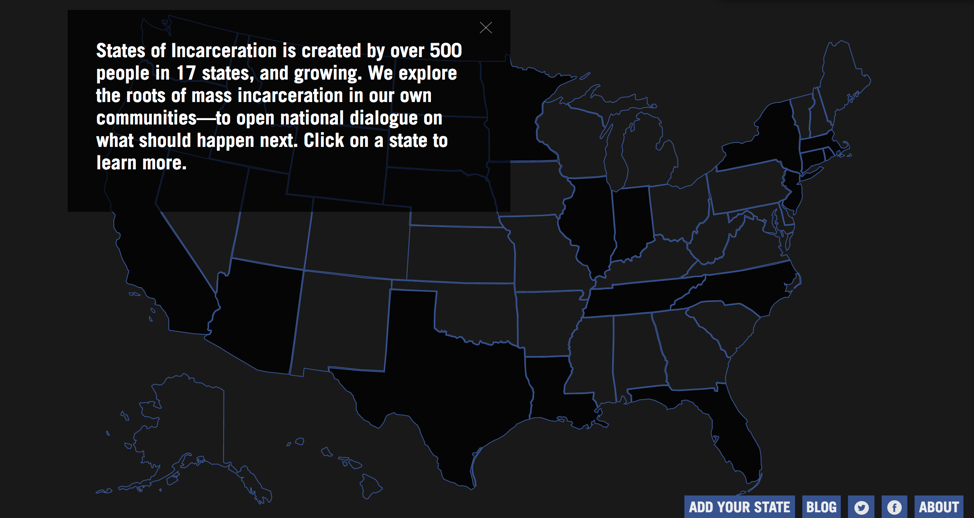Incarceration is arguably one of the most searing examples of social inequity. It is at the nexus of issues of race, class, gender and economic disparity, with a majority of the prison population comprising minorities and the socially marginalized. It can also be seen—and is seen by many scholars and activiists—as extending the policies and practices of slavery, and reinforcing more contemporary instances of xenophobia.
The podcast will address these issues on the most compelling way possible through the voices of those affected and asking for change. The Collaboratory portfolio and platform will enable the program content to become actionable, as well as listenable.
Incarceration: A Podcast for Change extends the structure of the Humanities Action Lab (HAL) project by further exploring the question of how expanding the project in public media can serve a larger social justice mission by bringing the research and investigation of States of Incarceration to a radio and audio audience. We are also investigating whether a robust audio platform could be the basis for a pedagogic model by imagining the components of the program as a teaching tool for educators at both the high school and college levels. Those who might be served by such materials include faculty and students of African-American and American history; civic engagement and social justice; immigration and citizenship; and socially committed arts programs.
We take our critical lead not only from the architecture of the original HAL project, which identified four key questions* but from the words of our subjects, whose primary mission, from historians to activists, is to change this narrative and to create and informed and concerned citizenry to do so. As Glenn Martin, executive director of JustLeadershipUSA, states in his interview, “ I believe is that until we get to the point where this country understands how these policies affect people directly, we won’t get to a tipping point in terms of criminal justice reform.”
STATES OF INCARCERATION FOUR MAIN QUESTIONS
Who is a criminal? What is a crime?
Are criminals citizens? Are non-citizens criminals?
Who works for prisons? Who do prisons work for?
Where is the “carceral state”?

